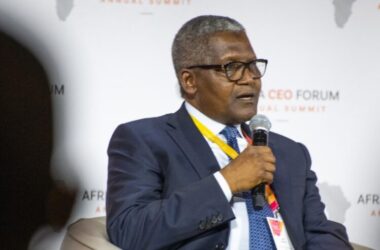The Federal Executive Council (FEC) has officially approved the full implementation of the Naira-for-Crude initiative. M
The Ministry of Finance disclosed this on its official X (formerly Twitter) account on Wednesday in a post titled “Update on the Crude and Refined Product Sales in Naira Initiative.”
It confirmed that the policy will no longer be seen as a short-term measure, but as an essential strategy meant to stabilize Nigeria’s energy market and promote local production.
Earlier, the first phase of the program, which ran for six months and involved the Nigerian government, the Nigerian National Petroleum Company Limited (NNPC), and the Dangote Petroleum Refinery, ended on March 31, 2025.
Since its expiration, the Dangote refinery had stopped accepting Naira for refined products, awaiting further direction from the government.
Following a review meeting held on Tuesday, officials reiterated that the policy will now move into full-scale implementation. The committee in charge stated that the initiative is intended to promote energy security, support Nigeria’s refining capacity, and limit the country’s reliance on the US dollar in domestic oil transactions.
“The stakeholders reaffirmed the government’s continued commitment to the full implementation of this strategic initiative, as directed by the Federal Executive Council,” the Ministry said in its statement.
It was also noted that the government understands that changes of this scale can bring certain challenges. However, officials confirmed that these issues are being handled in a coordinated way by all involved agencies.
The ministry further explained that this policy is designed to increase economic independence, encourage more investment in domestic refining, and protect the Naira by reducing pressure on foreign exchange reserves.
The meeting was attended by top government figures including the Minister of Finance and Coordinating Minister of the Economy, Wale Edun, the Executive Chairman of the Federal Inland Revenue Service, Zacch Adedeji, and NNPC’s Chief Financial Officer, Dapo Segun. Others in attendance included representatives from the Dangote Refinery, Central Bank of Nigeria, Nigerian Ports Authority, Afreximbank, and key regulatory bodies.
“As with any major policy shift, the Committee acknowledges that implementation challenges may arise from time to time,” the Ministry stated. “However, such issues are being actively addressed through coordinated efforts among all parties.”










